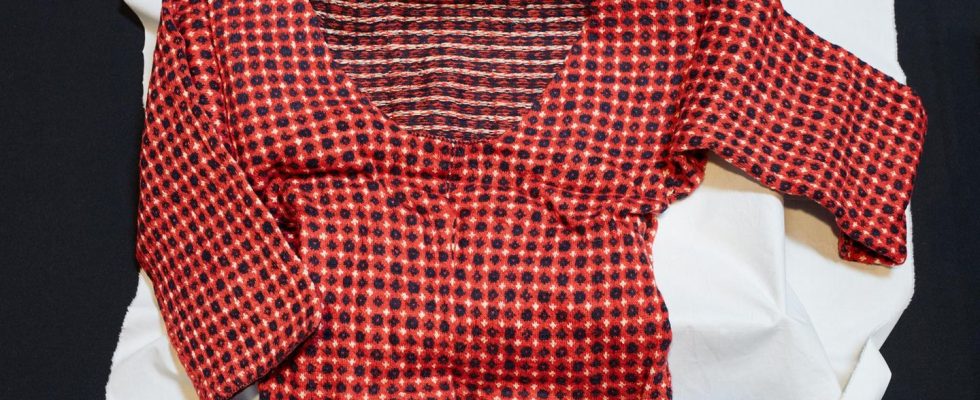“This is a time capsule”
The British once captured a ship from the Faroe Islands – now researchers are finding the loot
Also in the package was a century-old, almost new, women’s top
© Maria Cardamone/Prize Papers Project, National Archives / DPA
Until the 19th century, the British captured numerous ships from enemy countries. Now a German research team in London has discovered packages from one of these ships – they were still unopened.
A research team has captured five sealed packages from one more than 200 years ago Faroe Islands ship discovered. “This is very special because very, very little material has survived from the islands,” said Lucas Haasis from the University of Oldenburg, who is a historian and research coordinator of the “Prize Papers” project. The sealed packages and around 200 sealed letters are in their original condition in the National Archives in London. “This is a time capsule,” Haasis said.
The packages now discovered in London were transported on the merchant ship “Anne Marie”, which, according to the researchers, sailed under the Danish flag at the beginning of the 19th century. On September 2, 1807, the ship was hijacked by the British on its way from the Faroe Islands to Copenhagen, and part of the confiscated cargo is still stored in London today.
Coins and clothing in good condition
These also include the sealed packages that the research team from Oldenburg, Great Britain and the Faroe Islands opened for the first time on Wednesday. “It was like Christmas because you don’t really know what’s in it beforehand,” said Haasis. A red and blue knitted sweater with traditional patterns for a woman was found in one package. “It still looks like it was sent yesterday,” said the 39-year-old. “It was packaged for centuries.”
The scientists also found four pairs of white stockings, grain and personal letters to family members in the packages. There were also coins in a letter, said the researcher from Oldenburg. “We didn’t expect that either.” The team is now photographing and cataloging the finds, storing them again and putting the data online. There are currently still discussions as to whether the packages will also be issued.
The work is part of the Oldenburg project “Prize Papers”, which is funded by the Göttingen Academy of Sciences. Since 2018, scientists have been examining around 500,000 documents in the National Archives in London. “Our goal is to digitize everything and make it accessible worldwide,” said Haasis. The project is scheduled to run until 2036.
Treasures from captured ships
The historical documents all come from ships that the British captured between 1652 and 1815. During this time, capturing ships in war was allowed. “All you had to do was prove in court that the hijacked ship was actually an enemy ship,” said the Oldenburg scientist.
That’s why the British took flags, ship’s passports and other documents with them during their raids and some of them have been stored to this day. “The special thing about the Prize Papers is that there are documents from very different corners of the world – from colonial powers, but also from smaller states or Hanseatic cities.”


